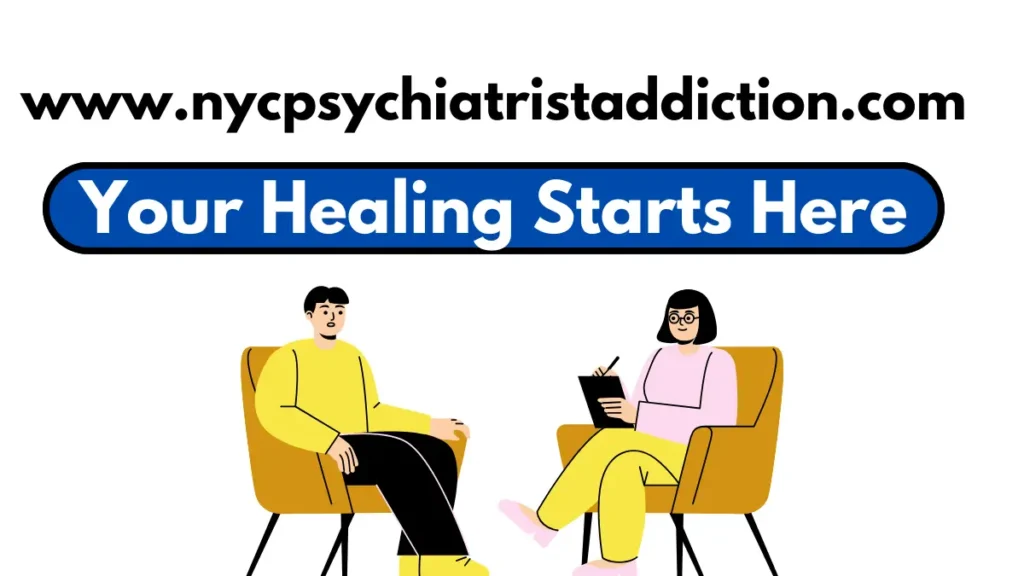The Intersection of Psychiatry and Addiction: Strategies Employed by NYC Professionals
By understanding the unique needs of each patient and leveraging community resources, these professionals are paving the way for healthier futures for those struggling with addiction.

The relationship between psychiatry and addiction is a critical focus for mental health professionals, particularly in a bustling environment like New York City. As the city grapples with rising rates of substance abuse and mental health disorders, psychiatrists are at the forefront of developing effective strategies for treatment. This article explores the multifaceted approaches employed by NYC psychiatrists to address addiction and its psychological underpinnings.
Understanding the Complexity of Addiction
Addiction is not merely a behavioral issue; it often stems from a combination of genetic, environmental, and psychological factors. NYC psychiatrists are trained to recognize the complexity of addiction, understanding that each patient’s experience is unique. By examining the various influences on an individual’s behavior, psychiatrists can better tailor their treatment approaches to meet specific needs.
Integrated Treatment Models
One of the most effective strategies employed by NYC psychiatrists is the integrated treatment model, which combines mental health and substance use disorder treatments. This approach recognizes that addiction often overlaps with mental health conditions, necessitating a comprehensive treatment plan. By addressing both issues simultaneously, psychiatrists can help patients achieve better outcomes and reduce the risk of relapse.
Psychotherapy Techniques
Psychiatrists in New York City commonly use various psychotherapy techniques to treat addiction. Cognitive Behavioral Therapy (CBT) is particularly effective in helping patients identify and change negative thought patterns associated with substance use. Additionally, Motivational Interviewing (MI) is employed to enhance a patient’s motivation to change, empowering them to take an active role in their recovery.
The Role of Pharmacotherapy
Pharmacotherapy is another critical component of addiction treatment. NYC psychiatrists often prescribe medications that can alleviate withdrawal symptoms and cravings, allowing patients to focus on their recovery. For example, buprenorphine is frequently used in the treatment of opioid addiction, while naltrexone is effective for alcohol use disorder. These medications can significantly improve the chances of successful recovery when combined with therapy.
Collaborative Care Models
Collaboration among healthcare providers is essential in addressing addiction effectively. Psychiatrists in NYC often work closely with primary care physicians, social workers, and addiction specialists to create a comprehensive care plan for their patients. This collaborative approach ensures that all aspects of a patient’s health are considered, providing a more holistic treatment experience.
Culturally Competent Care
New York City is a melting pot of cultures, and understanding the cultural context of addiction is vital for effective treatment. NYC psychiatrists are trained to provide culturally competent care, recognizing how cultural beliefs and values can influence a patient’s relationship with substance use. By respecting and incorporating these cultural factors into treatment, psychiatrists can foster a more trusting therapeutic relationship.
Community Resources and Support
Recognizing the importance of social support in recovery, NYC psychiatrists often connect patients with community resources. This may include referrals to support groups, vocational training programs, and housing assistance. By providing access to these resources, psychiatrists can help patients build a supportive network that enhances their recovery process.
Addressing Co-occurring Disorders
Many individuals with addiction also experience co-occurring mental health disorders such as anxiety or depression. NYC psychiatrists are trained to identify and treat these co-occurring disorders, using an integrated approach that addresses both the addiction and the underlying mental health issues. This comprehensive treatment strategy is crucial for long-term recovery and well-being.
Conclusion
The intersection of psychiatry and addiction is a complex and dynamic field, particularly in a diverse city like New York. Through integrated treatment models, effective psychotherapy techniques, and collaborative care, NYC psychiatrists are making significant strides in addressing the challenges of addiction. By understanding the unique needs of each patient and leveraging community resources, these professionals are paving the way for healthier futures for those struggling with addiction.
What's Your Reaction?





















